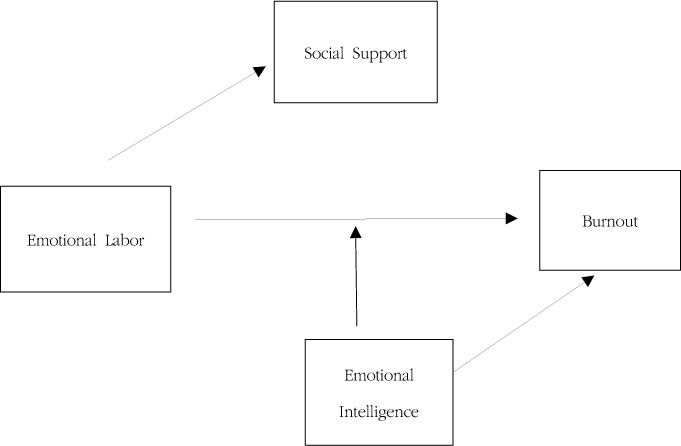1Doctoral Student, College of Nursing, Washington University, USA.
2Professor, Red Cross College of Nursing, Chung-Ang University, Korea.
Copyright © 2012 Korean Academy of Nursing Administration

Descriptive Statistics and Correlations among Emotional Labor, Social Support, Emotional Intelligence and Burnout (N=382)
Difference of Burnout by General Characteristics (N=382)
Summary of Hierarchical Multiple Regression with Burnout
Standardized Direct, Indirect and Total Effects